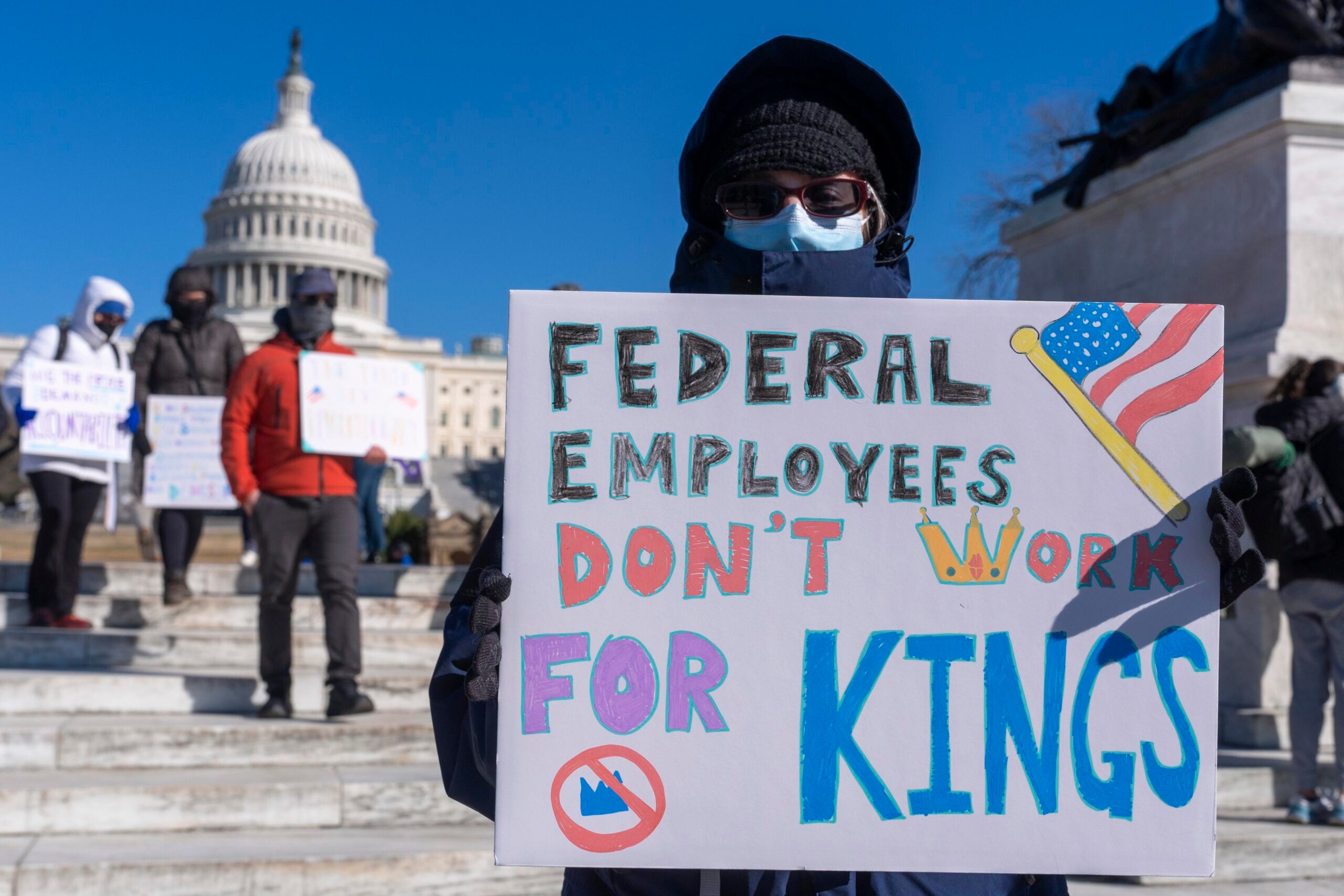On Sunday, out-of-work Wisconsinites entered their fifth week without a $600 federal supplement in unemployment benefits.
Anthony Steward, a cook at the Milwaukee Bucks’ Fiserv Forum who lost his job in mid-March, said without the benefit supplement, he’s been struggling to afford expenses like rent, food and the costs that come with raising two kids.
“I get $300 a week, but my rent is, what, almost $1,000,” Steward said. “Trying to manage a lot of things that I’m just used to managing right now is really become a little headache.”
News with a little more humanity
WPR’s “Wisconsin Today” newsletter keeps you connected to the state you love without feeling overwhelmed. No paywall. No agenda. No corporate filter.
Steward said he worked two days at Fiserv last week, but that extra money he will eventually make from his job was deducted from unemployment benefits. He added that he’s not sure when he’ll be called back for more shifts in the future.
Lawmakers in Congress have failed to reach a deal over another round of federal stimulus spending that would likely include some level of increased unemployment benefits for the more than 1 million Americans out of a job due to the coronavirus pandemic. The program technically ended on July 25 in Wisconsin, but it officially ended under federal law on July 30.
And Gov. Tony Evers said in mid-August his administration was still deciding whether to apply for a program from the Trump administration that would give states the option of supplementing benefits by either $300 or $400.
Under the Trump administration’s program, the federal government would pay $300 a week in supplemented benefits and states could pay the other $100. If states are unable to pay the $100, they can still apply for the federal money, meaning the supplemented benefits would total just $300 a week.
Chenon Times-Rainwater, the co-founder of the Wisconsin Unemployment Action Group, an organization that helps Wisconsinites who are struggling to navigate the unemployment system, has been relying on unemployment to help support her family. She saw her benefits drop to a little under $200 a week, down from nearly $800. She said it’s impacted what she can afford to spend on things like back-to-school clothes for a granddaughter whom she raises.
“Losing that $600 meant, well what are we going to do for new clothes, because she can’t fit in anything … she has now and she needs new shoes,” she said. “And then I have a special needs teenager who has in-home caregivers who we pay out-of-pocket for. And we haven’t had the funds to have them, so that puts her at risk.”
Times-Rainwater said she’s become more irritable with things that wouldn’t normally upset her as her stress levels rise.
“It’s definitely been stressful and it’s been hard to manage because we don’t see relief coming,” she said.
The Wisconsin Department of Workforce Development, the state agency that administers unemployment benefits in Wisconsin, said that in the final week the $600 supplement was in effect in Wisconsin, more than 160,000 residents received the benefit.
Wisconsin economists warned that the end of the program could have dire consequences for the state’s economy, with a large swath of the state unable to spend money and generate economic activity.
Both Steward and Times-Rainwater called on elected officials to find a solution for those Wisconsinites, many of whom, they said, are struggling to cover basic expenses.
Times-Rainwater was critical of Evers’ decision not to apply for the program created by Trump.
“What I expect from him is to know why he hasn’t applied for it and what he’s going to do in place of it,” she said.
Wisconsin Public Radio, © Copyright 2026, Board of Regents of the University of Wisconsin System and Wisconsin Educational Communications Board.






